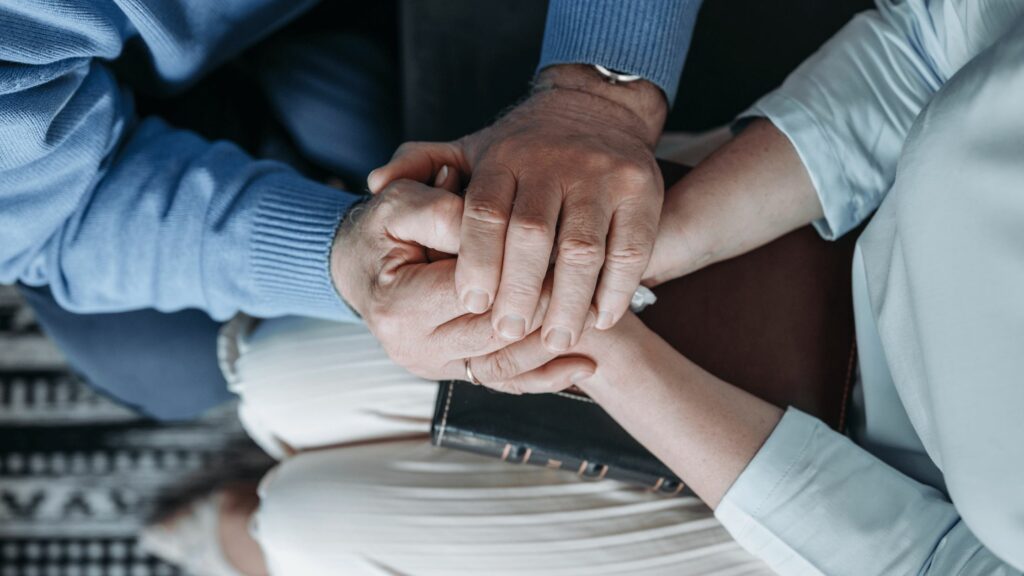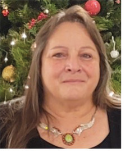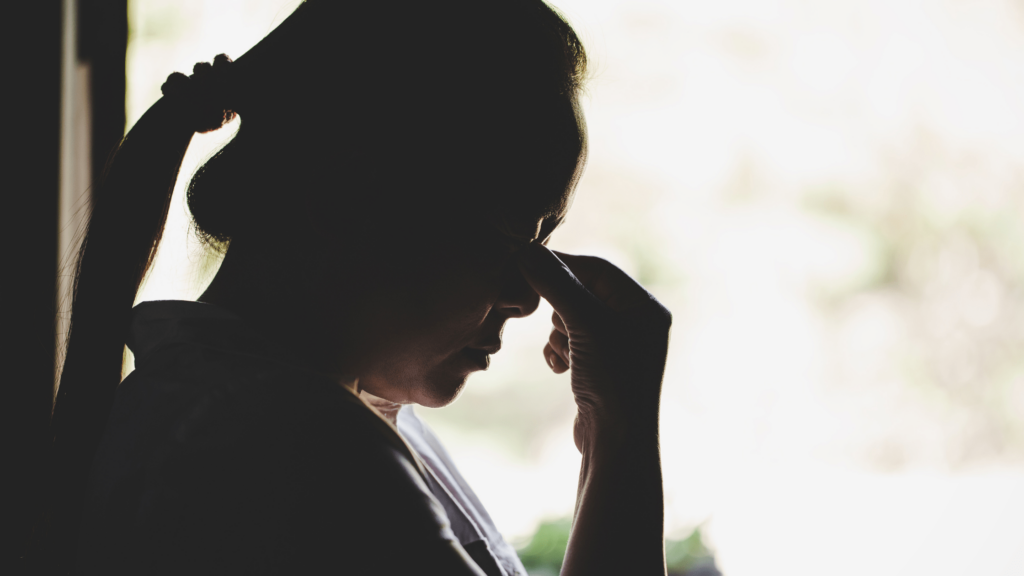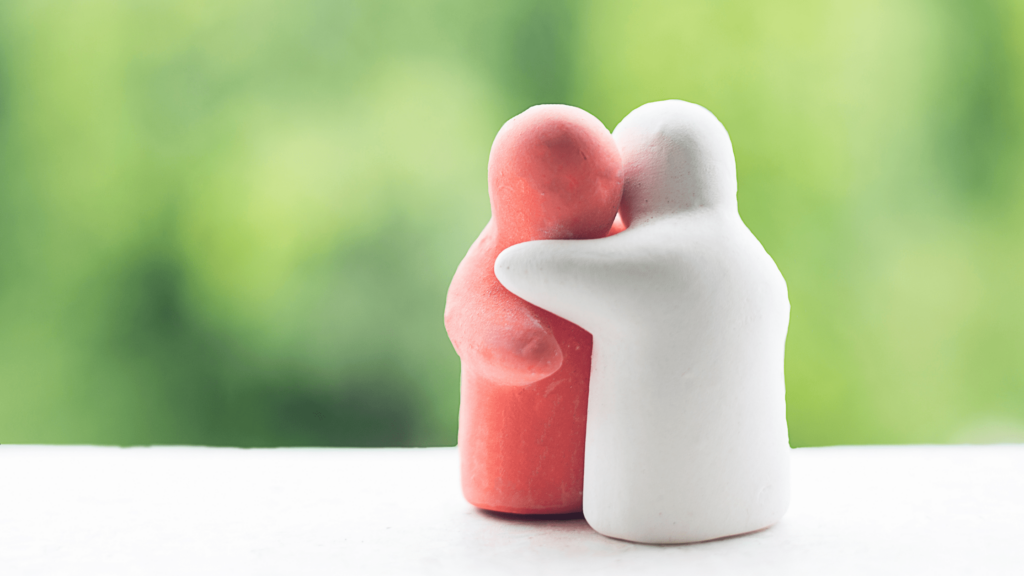© 2024 Abode Hospice and Home Health
All Rights Reserved
All Rights Reserved
When it comes to dealing with grief, there’s no one-size-fits-all approach. Everyone grieves differently, and grief can affect individuals, families, and a person’s entire social circle. The grieving process can be especially complicated for those who are homebound or on hospice with a terminal illness.
Creating a plan of care for home care or hospice patients must also incorporate grief. By including grief in an individual’s plan of care, we are able to meet the holistic needs of patients and support them throughout the process.
Home health services allow patients to comfortably remain living in their homes with the support of exceptional medical professionals. However, individuals with chronic conditions or recovering from an illness may also experience grief, especially during the early stages of adjusting to a new life.
Patients may grieve the loss of the life they once knew, which comes with a set of new emotions to tackle. After an injury, illness, or surgery, it can be difficult for patients to adjust to changes in abilities and personal freedoms/independence.

As we develop a plan of care for individuals receiving home health care, it is vital to consider this grieving process. By acknowledging this grieving process, home health professionals can actively support healing and find supportive ways to improve the mental wellness of these patients. It is important to remember that healing looks different for every patient, and no timeline can be associated with processing grief.
Hospice care is focused on supporting patients with terminal illnesses to be as comfortable and pain-free as possible. When an individual is put on hospice, grief can occur both personally and for family members. Many families of patients experience anticipatory grief before an impending loss. This type of grief can cause individuals to feel many unexpected emotions: fear, sadness, loneliness, anger, and more.
Coping with grief can look different for every patient and family member. What brings one person comfort may not help another.
Creating a personalized hospice care plan is one of the ways our hospice team can help support individuals and their families experiencing grief. From providing emotional support to additional resources, there are many ways hospice care can support grieving individuals.

To take things a step further, we offer a helpful bereavement program, which can support families during a difficult time in their lives. We provide one-on-one support, supportive phone calls and in-home support sessions to help each individual manage the grieving process and begin their healing process.
Whether you’re grieving a change in abilities or the loss of a loved one, each person’s grieving process is entirely unique. We incorporate grief into the plan of care for both home health and hospice patients. To learn more, contact us anytime to learn more about how our home health and hospice care can help support you and your loved ones through any stage of grief.
The way we experience grief is very individual; we each grieve in our own way. There are no universal “stages” to grief – it is as individual as a fingerprint or a snowflake. People may have different “styles” of grieving. Some people may express their grief verbally, or cry easily; other people may channel their grief into activity. All of these responses are normal. How we grieve is not a measure of how we love.
There is no timetable to grief. Over time, the pain lessens, and we return to similar, sometimes better, levels of functioning.
Many grieving people wonder if they would benefit from joining a support group. Support groups are a time-tested method of help for people struggling with all sorts of difficulties. But groups are not magic; there are no words that can be uttered within a group setting that can make grief disappear. Many people report comfort in the companionship of group support and benefit from knowing they are not alone in their experience of grief.
Groups are places to work together and support in an environment where everyone gives and takes. Not every griever will find a support group suitable, as everyone grieves in their own way. For many, however, support groups have much to offer, such as:
Grief is experienced in so many ways – physically, emotionally, and spiritually. Being with other grievers can reaffirm that one is not going crazy, which is common concern of people who are grieving. While every loss in unique, having the support of other who have experienced loss and understand can be comforting.
For many people, a support group can be a break from the loneliness and isolation that often comes with grief.
There is no single solution to dealing with loss; but to listen to stories of how others cope with a particular problem, new ideas for coping can emerge.
They provide hope by providing models that reaffirm that one can survive loss.
They provide new understandings and reminders of past coping skills. Sometimes grievers find that providing comfort to fellow support group members brings them a sense of pride by showing empathy and kindness to others who are grieving.
Abode Hospice offers on-going grief support for individuals who are dealing with the loss of a loved one. We offer a way to connect those who are going through common challenges. The Bereavement Support Group is free to anyone who is dealing with grief in their life.
The Bereavement Support Group, led by Loren Couch, meets in the Conference Room in the Abode Hospice office.
744 Horizon Ct, Suite 110
Grand Junction, CO 81506
Meetings are held every Tuesday, from 2:00-3:00 pm.
For more information about the group, contact Loren Couch at 970-658-8705.

Loren is a native of Nebraska and a Veteran of the U.S. Navy. Loren took his undergraduate degree from Mesa State College. He completed Graduate School at Adams State College in Alamosa, CO with a master’s degree in Counseling Psychology.
Loren has extensive experience in both group and individual therapies. He endorses the value of empathy and support that groups offer people dealing with the loss of a loved one.

Maddie is a native of Colorado and loves her state. She is a graduate of the University of Sedona. She has pastored and been in ministry for 30+ years. She has a master’s degree in Metaphysical and Spiritual Counseling and is continuing to get her Doctorate. She has practiced for more than 20 years and supports the values of Hospice.

When we think of grieving, we primarily think of grief following a loss. However, this is not the only form of grief. Anticipatory grief refers to the feeling of grief that occurs before an impending loss. This can go beyond the loss of the person. It can also be difficult to think about how the roles in your family will change or how different the future will look.
While anticipatory grief is very similar to grief after death, there can also be a lot of differences in the experience. In grief after death, you are facing a loss that has already occurred and must figure out how you are going to move forward in your new reality. In anticipatory grief, you know you will have to face this loss at some point in the future, but you can’t know for sure when it will occur. You are in a sort of in-between state where your loved one is still here, but you know your time with them may be limited. This feeling can be more severe for some because you are trying to wrap your head around the idea of life without this person while they are still here.
Although they may not think about the term for it, families with a loved one on hospice services are all too familiar with anticipatory grief. When you have a loved one on hospice services, you understand that they have a life expectancy of six months or less if the disease were to run its normal course. This means you are very much aware of the impending loss you are facing, which can oftentimes lead to anticipatory grief.

Most people have likely heard about bereavement services that are offered through hospice. What you may not know is that you don’t have to wait until after the death of a loved one to start taking advantage of these beneficial services.
Bereavement services can start at any time throughout the hospice journey, including before death. The feelings of anticipatory grief can be confusing, but our compassionate team of bereavement coordinators can help you sort through these feelings.
It’s never easy to face the loss of someone you love. Although we cannot take away the pain you are feeling, we will do all we can to support you through your grief. If you or someone you love would like someone to talk to, please contact us. We will connect you with a highly trained, caring bereavement coordinator who will walk with you through your grief.
How Anticipatory Grief Differs From Grief After Death – https://www.verywellhealth.com/understanding-anticipatory-grief-and-symptoms-2248855

We all grieve differently, but one thing remains true for everyone: the importance of taking care of yourself. Whether you’ve found yourself in a state of just going through the motions or you’ve put all your focus on taking care of your loved ones, it can be easy to put your own needs on the back burner when facing the loss of a loved one.
However, it’s absolutely imperative that you take time to focus on yourself, too. In honor of Mental Health Awareness Month, we are discussing the importance of self-care throughout the grieving process.
Mental Health Awareness Month dates all the way back to 1949 when the National Association for Mental Health (now known as Mental Health America) first organized the observance in the month of May to help raise awareness and lessen the stigma attached to mental illness.
For a long time, society looked at mental illness as being just one thing. There was always a negative stigma attached to the term, and people often thought of those living with a mental illness as having ‘gone mad’. However, that is simply not true. Over time, we’ve learned more about the many layers and types of mental illness.
Mental illness is the term used to describe mental health conditions that impact a person’s mood, thinking, and behavior. Common mental illnesses include:
Losing a loved one can be a traumatic experience. You may feel as though you lost a part of yourself and that your life will never be the same. While there is some truth to this, it’s important to remember that you are still here and must go on living your life.
“We don’t move on from grief. We move forward with it.”
– Nora McInerny
Feelings of sadness, anger, loneliness, and hopelessness are all common throughout the grieving process. However, these feelings can sometimes develop into chronic grief which can in turn become a mental illness. In some cases, grief can lead to depression.
Symptoms of chronic grief can include:
Self-care used to be thought of as bubble baths and pampering yourself, but there is much more to self-care. Just like the grieving process, self-care can look different for everyone. But the overall concept is to take care of yourself physically, mentally, and emotionally.
To take care of yourself physically is pretty simple: eat a well-balanced diet, drink plenty of water, exercise regularly, and practice healthy hygiene habits. However, taking care of yourself mentally is a little less cut and dry. This is where it really differs from person to person. To take care of yourself mentally and emotionally, you need to take time to do the things that make you feel good and happy. Hobbies are a good place to start when focusing on taking care of yourself mentally. Maybe you enjoy sitting outside and reading a good book, maybe you are an artist, maybe you enjoy taking long walks with your dog. Whatever it is that leaves you feeling happy and fulfilled, do it!
Research shows the more you practice self-care, the more confident, creative, and productive you are. This also leads to experiencing more joy, making better decisions, building stronger relationships, and communicating more effectively. Overall, you will be in a better frame of mind, making you a better version of yourself. This is not only good for you, but it’s also good for those who depend on you.
When you take time to take care of your whole self (physically, mentally, and emotionally), it will help you to process your feelings of grief in a healthier way.
Always remember that you do not have to face the journey of grief alone. Lean on friends and family to help you through. Don’t be afraid to talk about your feelings. Sometimes we feel the need to be strong for those around us. If this is the case and you would feel more comfortable talking to someone outside the family, lean on the support of your hospice bereavement team. Our kind, compassionate bereavement coordinators are always available to talk or just listen. Never hesitate to reach out.
If you or someone you love is struggling with their feelings of grief and would like to talk to one of our bereavement coordinators, please contact us at (800) 719-0545.
By Jacquelyn Buffo, MS, LPC, CAADC
Losing a loved one to a terminal illness is one of the most painful experiences you can go through. The loss of a spouse or partner is traumatic for many people, and the grief journey can feel overwhelming, confusing, and painful. However, each person grieves and works through the grieving process at their own pace and in their own way. If you are grieving the loss of a partner or spouse, you are not alone. The month of April is Bereaved Spouses Awareness Month, observed since 2008. Bereaved Spouses Awareness Month provides support and resources for bereaved spouses.
The difficulty of losing a spouse is followed by a grieving process that can be challenging for many people. Grief is a process and includes many different types of symptoms, some more severe than others. Feelings such as shock, sadness, numbness, and even guilt can occur after losing a spouse. Your experiences of grief may be different than others, and it is dependent upon factors specific to you. Grief can present as intense emotions and can also present in behaviors.
For example, bereaved spouses may experience:
There is no right or wrong way to grieve, and support and help are available to you. An available resource along your journey of bereavement is hospice care. Hospice can help spouses prepare for the impending loss of a loved one. The hospice’s bereavement team can also help spouses after a patient passes. The mission of hospice care is to deliver compassionate, quality care to individuals with terminal illnesses and support the families through the caregiving phase and bereavement process.
Many spouses spend a significant amount of time and energy caring for and tending to their ill partners. But unfortunately, they may overlook their own needs and feelings during this time. Utilizing the hospice team as a source of support can help spouses tend to their emotions and needs when it is difficult.
If you are struggling with the loss of a loved one, it is vital to get the help and support you need. First, talk to a trusted family member or friend about what you’re going through. Loved ones can be strong sources of validation, support, and compassion. You can also talk to your doctor if you notice a change in behavior and mood or if you are having difficulty performing the normal activities of daily living, such as showering regularly and eating. Your doctor may be able to provide you with medication and can also provide you with referrals to a grief counselor or support group near you.
Sources:

The holiday season is here, and what is a time of joy and togetherness for most can be a time full of sadness and grief for others. The holidays are meant to be spent with those we love, so how can you be expected to feel like celebrating when someone you love is no longer there to celebrate with you?
If you are missing a loved one this holiday season, here are some tips to help you take a step back from the grief and survive the holidays.
Let’s be honest, they are everywhere during the holidays. Preparing for these triggers and having a plan for coping with them can sometimes make the triggers more manageable as you encounter them.
Plan to get some space from the holiday chaos if you need it. Being surrounded by family and friends is great, but all at once can be emotionally overwhelming and hard to overcome. Don’t feel guilty about your grief. It is important to be conscious of your limits and take some time to recollect yourself.
The holidays are a time to gather together, eat good food, and share what we’re thankful for. If you’ve recently lost a loved one, it can be hard to feel thankful when you are grieving. Although you may be focusing on the loss, try to remember the good things that relationship brought into your life. Search for that gratitude.
Acknowledge that things will be different this year. Some holiday traditions will remind you of your lost loved one, but it is okay to limit which of these you allow yourself to remember or not. Take time to prepare for which traditions will make you happy and which will overwhelm you.
Although you may normally be the one to host during the holidays, this year may be too much to take on alone after losing your loved one. Accept help when it’s offered. Remember that there is no shame in saying yes. Those who love you want to help.
The holidays can be hard for those who have recently lost a loved one. Grief can be especially unavoidable during these times, but it is important to remember that you can still feel joy through the grief. Taking these tips into account can help you prepare for that grief and make your holidays more enjoyable.
Anger can be a common emotion we experience when we have lost someone close to us. We seek someone to blame or someone to hold responsible, someone who could have altered fate to erase what happened, and sometimes our target is the person looking back at us in the mirror. Guilt is a form of anger turned inward, and it is one of the most challenging emotions to overcome. We look back on the time proceeding our loss, searching for something we missed, what we could have done differently, or ways we could have convinced our loved one to seek out a different course of action. Sometimes we look back and wish we had said something that we kept inside or kept something inside we regret saying.
Guilt is complex, and since the beginning of the COVD-19 pandemic it is more pervasive than ever. We might feel guilty because we were unable to visit a loved one during their final days, even if this was a result of precautions or restrictions outside the realm of our control. We might feel guilty for not taking the threat as seriously as we should have, ignoring or forgetting to take the appropriate precautions. Maybe we feel guilty we survived the virus when so many others, including people we knew or loved, succumbed to this terrible disease. This last form is often referred to as “survivor’s guilt,”which is very common among people who live through difficult or traumatic events. Even though we were ill-equipped to deal with any loss, no one was prepared for something as widespread as COVID-19.
If you, like so many others, are struggling with guilt related to the pandemic, it can be difficult to find a way to shake how you are feeling. Here are a few things to keep in mind when you are trying to deal with your guilt feelings:
The above suggestions are just a few ways to start down the path to forgiving yourself and getting past your feelings of guilt. If you or someone you know is struggling with issues related to COVD-19 or any other difficult life event, there is help and support available in your community. You can call our agency anytime and our family support staff will help get you to the help you need. You can also reach out to the National Alliance on Mental Illness at 800-950-6264 or if you or someone you know is struggling with thoughts of self-harm please contact the National Suicide Prevention Lifeline at 800-273-8255.